Speakers at ESCAIDE 2020
Plenary A: Keynote session on COVID‑19
Invited keynote speaker: Dr. Andrea Ammon
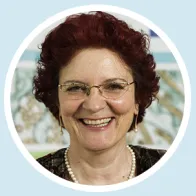
Dr. Andrea Ammon
Dr. Andrea Ammon was formally appointed as the Director of the European Centre for Disease Prevention and Control in June 2017. Previously, Dr. Ammon was ECDC’s Acting Director from May 2015.
Dr. Ammon joined ECDC as the Head of the Surveillance Unit in 2005. The unit was responsible for developing The European Surveillance System (TESSy), implementing a long-term surveillance strategy for the European Union (EU), evaluating the Dedicated Surveillance Networks (DSN), performing step-by-step transfer of DSN activities to ECDC, revising the EU case definitions and producing an Annual Epidemiological Report on infectious diseases in the EU.
From April 2011 to April 2015, Dr. Ammon was Deputy to the Director and Head of Unit for Resource Management and Coordination.
Prior to joining the ECDC, Dr Ammon served in several roles at the Robert Koch-Institute, in Berlin, Germany, most recently as Head of Department for Infectious Disease Epidemiology. In this capacity, she maintained and further developed the German national surveillance system; coordinated the national outbreak response team for current and emerging infections; coordinated emergency planning for influenza; directed the national Field Epidemiology Training Programme; coordinated epidemiological research programmes in infectious diseases and provided scientific advice for government Ministries, Members of Parliament, and the public.
Invited speaker: Dr. Maria Van Kerkhove
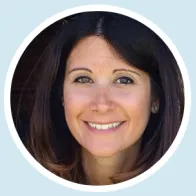
Dr. Maria Van Kerkhove
Dr Maria Van Kerkhove, PhD is an infectious disease epidemiologist who specialises in outbreaks of emerging and re-emerging pathogens.
Dr Van Kerkhove is from the United States and completed her undergraduate degree at Cornell University, a MS Degree at Stanford University, and a PhD in infectious disease epidemiology at the London School of Hygiene and Tropical Medicine. Dr Van Kerkhove is currently the Middle East Respiratory Syndrome Coronavirus (MERS-CoV) Technical Lead in the World Health Organization’s Health Emergency Program, in the High Threat Pathogens Unit.
Dr Van Kerkhove regularly participates in Missions to affected member states, including the Kingdom of Saudi Arabia, Jordan, Qatar and the Republic of Korea. Prior to WHO, she was the Head of the Outbreak Investigation Task Force at Institut Pasteur’s Center for Global Health where she was responsible for establishing public health rapid response teams for infectious disease outbreaks. Dr Van Kerkhove was previously employed by Imperial College London in the MRC Center for Outbreak Analysis and Modelling where she worked closely with WHO on influenza, yellow fever, meningitis, MERS-CoV and Ebola Virus Disease.
Invited speaker: Prof. George F. Gao
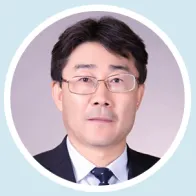
Prof. George F. Gao
George F. Gao, DPhil (Oxon), MSc is Director-General of the Chinese Center for Disease Control and Prevention (China CDC), Vice President of the National Natural Science Foundation of China (NSFC), Director and Professor at CAS Key Laboratory of Pathogenic Microbiology and Immunology, Institute of Microbiology, Chinese Academy of Sciences, and Dean of the Medical School, University of Chinese Academy of Sciences.
George obtained his PhD (DPhil) degree from Oxford University, UK and did his postdoc work in both Oxford University and Harvard University. Using interdisciplinary methods, including virology, immunology and structural biology, Gao has made remarkable contributions to the study of inter-species pathogen transmission. His work revealed the origin and interspecies transmission mechanism of avian influenza virus including the virus entry mechanism and T-cell molecular recognition. He is a leading figure for the control of infectious diseases in China and a world advocate voice of global public health strategy. He led China Mobile Laboratory Testing Team in the fight against Ebola outbreak in Sierra Leone in 2014 and continued his leadership in China CDC’s efforts supporting public health capacity strengthening in developing countries in Africa.
George is elected as the foreign associate or corresponding fellow/member of Chinese Academy of Sciences, the Third World Academy of Sciences, African Academy of Sciences, US National Academy of Sciences, American Academy of Microbiology, European Molecular Biology Organization, American Association for the Advancement of Science, Royal Society of Edinburgh, and the dean or professor of medical school/universities. He has published more than 600 peer-reviewws scientific papers in journals such as Cell, Nature, Science, The Lancet, New England Journal of Medicine, Proceedings of the National Academy of Sciences USA etc., 10 books or book chapters and holds more than 25 UK, US and Chinese patents.
George was awarded the TWAS Prize in Medical Science in 2012 and the Nikkei Asia Prize in 2014, and with numerous awards and prizes from China, including the recent National Award for the Distinguished Scientist in 2016, the National Science and Technology Award and National Innovation Award in 2017.
Plenary B: Pandemic preparedness in times of COVID-19: how have pandemic preparedness plans contributed to responding to this global public health threat?
Invited speaker: Dr. Anders Tegnell
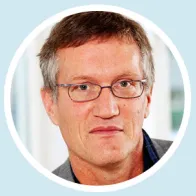
Dr. Anders Tegnell is the Deputy Director General and State Epidemiologist of the Public Health Agency of Sweden.
He has been the Swedish State Epidemiologist since 2013. He is a medical doctor with a PhD in infectious disease.
Dr. Tegnell has international experience, for example from Laos in 1990-1993 (WHO) and from DRC during the Ebola outbreak in 1995, and he has extensive experience of leading different Swedish government agencies at different levels in the field of public health and disease control.
Invited speaker: Dr. Francesco Maraglino
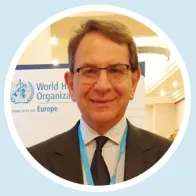
Dr. Francesco Maraglino
Dr. Francesco Maraglino, Senior Medical Executive Officer, is the Director of the Unit for Prevention of Communicable Diseases in the Italian Ministry of Health
He was born in Taranto, Puglia, in the south of Italy.
Dr. Maraglino is a Medical Doctor (MD), specialist in Epidemiology and Healthcare Statistics.
After working as a Medical Officer in the Navy, as Medical Consultant in the Hospital of Taranto (including the Division of Infectious Diseases) and in the Emergency Service of the local Fire Dpt., he started in 1994 his career in the Ministry of Health, during which Dr Maraglino has been appointed, during the years, as Director of the Port and Airport Health Offices of Rome-Fiumicino, Taranto and Genova and as Head of the Unit for the Nation Healthcare Planning.
He represents Italy in many European and international institutions and fora as ECDC (Member of the Management Board; National Coordinator of the CCB, NFP for Preparedness), European Commission – Health Security Committee, WHO, Global Health Security Initiative, Global Health Security Agenda.
Invited speaker: Prof. Devi Sridhar

Prof. Devi Sridhar
Devi Sridhar is a Professor at the University of Edinburgh Medical School and holds a Personal Chair in Global Public Health.
She is the founding Director of the Global Health Governance Programme and holds a Wellcome Trust Investigator Award. She was previously Associate Professor in Global Health Politics and a Fellow at Wolfson College, Oxford University and a Postdoctoral Research Fellow at All Souls College, Oxford University. She was also a visiting Associate Professor at LMU-Munich and guest lecturer at the Harvard School of Public Health and the Public Health Foundation of India.
Her books include ‘Governing Global Health: Who Runs the World and Why?’ (OUP, 2017) and ‘the Battle against Hunger: Choice, Circumstance and the World Bank’ (OUP, 2007) and she has published in Nature, Science, the New England Journal of Medicine, the Lancet and the British Medical Journal. She served on the board of Save the Children UK, on the World Economic Forum Council on the Health Industry and co-chaired the Harvard/LSHTM Independent Panel on the Global Response to Ebola.
She holds a DPhil and MPhil from Oxford as a Rhodes Scholar and a B.S. from the University of Miami in the Honors Medical Program. Her work is concentrated in three areas: international health organizations, financing of global public health and developing better tools for priority-setting.
Invited speaker: Dr Gabrielle Breugelmans
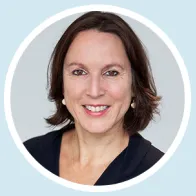
Dr Gabrielle Breugelmans
Dr Gabrielle Breugelmans is the Head of Epidemiology at the Coalition for Epidemic Preparedness Innovations (CEPI), where she started in March of this year. Dr Breugelmans is an infectious disease epidemiologist with a large expertise in global health, poverty related diseases, access to medicine, and vaccinology in low- to middle-income countries. She holds a PhD and MPH in Epidemiology from the Johns Hopkins Bloomberg School of Public Health in the U.S and a Master of Science degree in Health Sciences from the University of Maastricht in the Netherlands.
Prior to joining CEPI, she held the position of Director of Research at the Access to Medicine Foundation where she was responsible for directing the Antimicrobial Resistance Benchmark and the Access to Medicine Index research activities. From 2012-2017, she was the North-North Cooperation manager at the European and Developing Countries Clinical Trials Partnership (EDCTP).
She has also held various other positions including at the Agence de Médecine Préventive, a French NGO specialised in field-based research in vaccinology and epidemiology, and Sanofi Pasteur MSD where she oversaw the epidemiological research programme for the quadrivalent human papillomavirus vaccine. She was part of the 7th EPIET cohort and completed her fellowship at the Robert Koch Institute (RKI) in Berlin, Germany.
Plenary C: Magic bullet to control antimicrobial resistance (AMR): behaviour change or new technologies?
Invited speaker: Dr. Esmita Charani
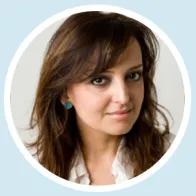
Dr. Esmita Charani
Dr Charani's research interests are in understanding the role of social constructs in relation to health-seeking and health-providing behaviours in infection, antimicrobial resistance (AMR) and antimicrobial stewardship (AS).
Her research to date has enabled multinational collaborations and research, including both low- and middle-income and high-income countries. Her research opened the field of conducting social science research to tackle AMR and AS in national and international contexts influencing the approach to research in this field.
With a background in clinical pharmacy and through her research she has forged cross-disciplinary collaborations as well as championing and supporting greater pharmacist role in AS internationally (France, Norway and India, South Africa, Uganda). She has contributed to capacity building of researchers in India and South Africa, and is recipient of the Academy of Medical Sciences Hamied Foundation UK-India AMR Visiting Professor Award. She is also a Global Health Fellow with the Office of the Chief Pharmaceutical Officer.
Invited speaker: Prof. Stephan Harbarth

Prof. Stephan Harbarth
Prof. Stephan Harbarth earned in 1993 his medical degree from Ludwig-Maximilians-University in Munich, Germany, and completed his residency in internal medicine and tropical medicine at Munich University Hospitals.
After serving as a clinical fellow in the Infectious Diseases Division in the Department of Internal Medicine at Geneva University Hospitals, Dr Harbarth completed his master’s degree in epidemiology at Harvard University in Boston. He is board certified in infectious diseases and was appointed full professor at the University of Geneva in 2018.
Dr Harbarth’s work has garnered several awards. His group is currently conducting several clinical and epidemiological studies to evaluate key questions related to the control of the acquisition, transmission and infection by multidrug-resistant microorganisms. He participates in several ongoing large-scale EU-funded studies (R-GNOSIS, AIDA, COMBACTE) and coodinates the DRIVE-AB project to address this public health threat.
Invited speaker: Prof. Dr. Alex W. Friedrich

Prof. Dr. Alex W. Friedrich
Prof. dr. Alex W. Friedrich, MD PhD is head of the department and Chair of Medical Microbiology and Infection Prevention at the University Medical Center Groningen (UMCG) in the Netherlands. He is specialist in medical microbiology. He coordinates large international and cross border research networks for the prevention of infections due to antimicrobial resistant microorganisms (http://www.eurhealth-1health.eu ; http://mrsa-net.org ; http://eursafety.eu/ ; http://www.health-i-care.eu ).
He is member of the Executive Committee of the European Society of Clinical Microbiology and Infectious Diseases (ESCMID) and Clinical Coordinator of the European Committee on Infection Control (EUCIC) of the ESCMID. He is member of the coordination team of the regional prevention network against antimicrobial resistance (www.remis-plus.net ) and is chair of the non-profit EurSafety-Fund of the UMCG for fostering patient safety and infection prevention.
In 2019 he received the Robert Koch Award for Hospital Hygiene and Infection Prevention. His research activities comprise basic and clinical-microbiological research in the field of Bacteriology, Molecular Typing of multi-drug resistant microorganisms (e.g. MRSA, CRE) with the goal of prevention of Healthcare associated Infections (HCAI) due to Antimicrobial resistant microorganisms.
Plenary D: Field-epidemiology in the coming decade: where we have come from and where we should be going
Invited speaker: Dr. Chikwe Ihekweazu
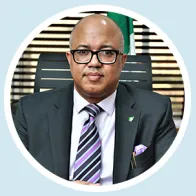
Dr. Chikwe Ihekweazu
Dr. Chikwe Ihekweazu is the Director General of the Nigeria Centre for Disease Control (NCDC) and was until January 2018, the Acting Director of the Regional Centre for Disease Control for West Africa.
Dr Ihekweazu trained as an infectious disease epidemiologist and has over 20 years’ experience working in senior public health and leadership positions in several National Public Health Institutes, including the South African National Institute for Communicable Diseases (NICD), the UK's Health Protection Agency, and Germany’s Robert Koch Institute (RKI).
Dr Ihekweazu has led several short- term engagements for WHO, mainly in response to major infectious disease outbreaks around the world including the WHO-China Joint Mission on Coronavirus Disease 2019 (COVID-19).
Invited speaker: Dr. Adam Roth

Adam Roth
Dr. Adam Roth is a medical doctor (M.D.) specialized in Clinical Bacteriology and Virology and an associate professor with a PhD in epidemiology.
He has several years of experience from running research and public health projects in low-, middle- and high‑income countries with developing epidemiology training in the Pacific Region.
Prior to joining ECDC as Head of Fellowship Programme, Adam headed the Unit for Vaccination Programmes at the Public Health Agency in Sweden.
Invited speaker: Dr. Carl Reddy
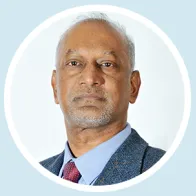
Dr. Carl Reddy
Carl Reddy, MB. ChB, FCPHM, M.Sc. (Epi) is the director of the Training Programs in Epidemiology and Public Health Interventions Network (TEPHINET) at the Task Force for Global Health. Dr. Reddy provides strategic, technical and operational direction to the TEPHINET network which comprises 73 member FETPs, regional networks and numerous partners and stakeholders across the globe.
Before joining TEPHINET, Dr. Reddy was the director of the South African Field Epidemiology Training Programme (SAFETP) in Johannesburg and during his tenure the programme transitioned from being dependent upon CDC funding to becoming owned by the National Institute of Communicable Diseases (NICD). During his time with SAFETP, Dr. Reddy served on various subcommittees and was on the board of the African Field Epidemiology Network (AFENET) based in Kampala, Uganda. He also attended program director meetings for TEPHINET, and in 2016, the organization elected him as Chairman of its Advisory Board.
Dr. Reddy completed his medical degree at the Nelson R Mandela School of Medicine in Durban, South Africa and has extensive clinical experience; as a medical officer in pediatrics, and primary health care including general practice locums in Saskatchewan, Canada. This was followed by stints in Accident and Emergency in South Africa and Southend Hospital in Essex, England. He then pursued the Diploma in Anaesthetics after which he recognized his calling and pursued a four-year residency in public health graduating with the Fellowship of the College of Public Health Medicine (FCPHM).
In 1998, Dr. Reddy won a scholarship from the Mexican government, which enabled him to study Spanish, do a year of public health-related research and complete his epidemiology training in that country. Armed with his MSc. Epidemiology, he returned to South Africa and joined its Medical Research Council, investigating ways to shorten treatment regimens for tuberculosis through clinical trials sponsored by the World Health Organization (WHO).
In 2008, he was seconded to the WHO’s Tropical Diseases Research and Training Program in Geneva to oversee the safety of patients enrolled into WHO sponsored clinical trials in Africa. From there he joined the Global Fund and then UNAIDS, later returning to South Africa to direct efforts for the UNAIDS Technical Support Facility in Johannesburg.
